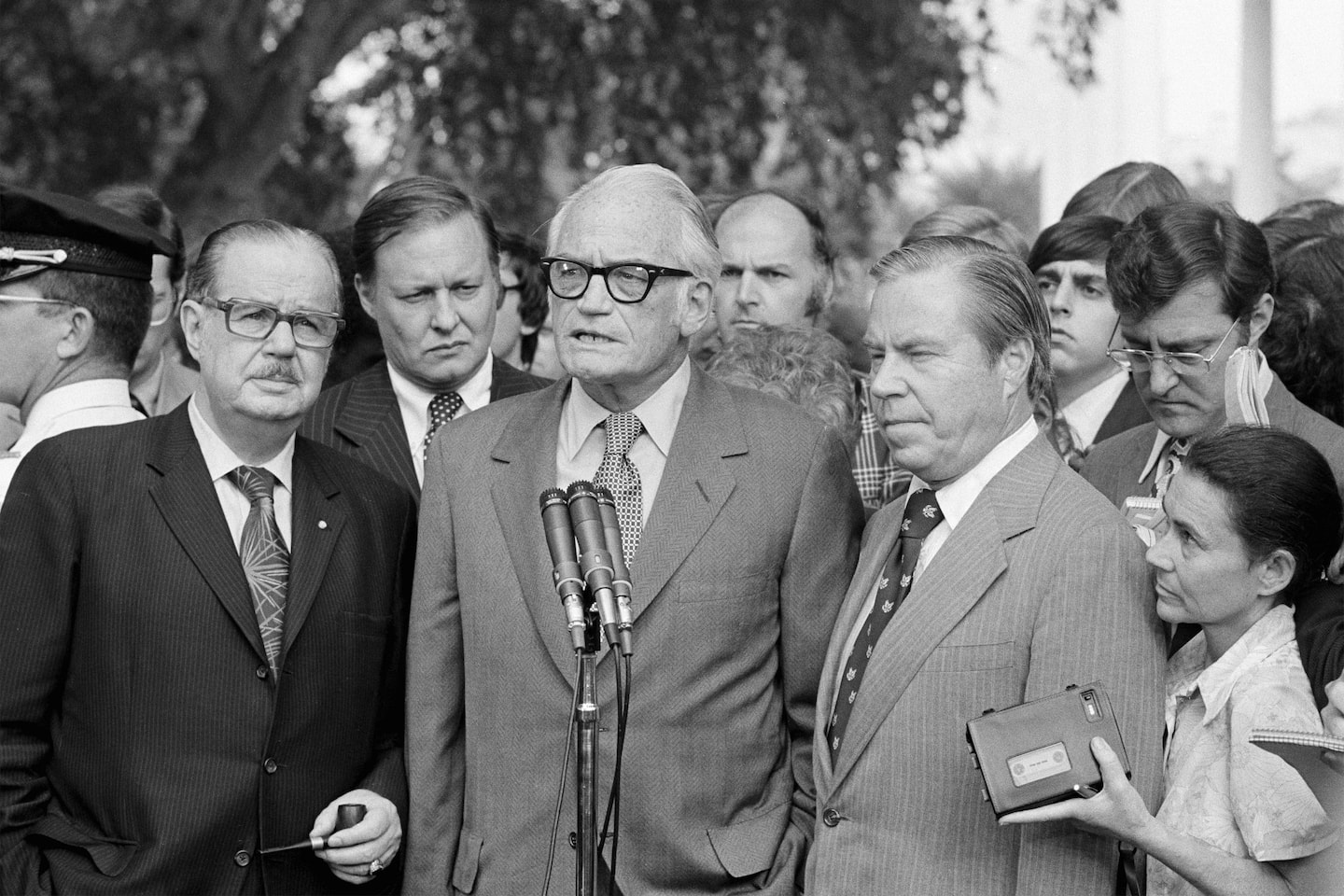Republican leaders swore an oath to defend the Constitution. That means telling Trump it’s over.

Trump needs to hear this directly, not via a concerned tweet here and there. Republicans cannot deliver the message by cluck-clucking to the media behind a cloak of anonymity. Instead of stepping up to the national interest that beckons, they have indulged the president’s narcissism and abetted Trump in spreading unhinged conspiracy theories that claim the election was stolen.
And what has that done? It has encouraged Trump to become more and more reckless, more and more lawless, to the point where he is putting the arm on Republican officials in Michigan, Georgia and elsewhere to overturn the will of voters in their states.
On Friday, Michigan legislative leaders Mike Shirkey and Lee Chatfield were summoned to the White House. Reports have it that Pennsylvania officials will be next.
It is a subversion of democracy unlike anything we have ever seen. And it demands a response from the president’s own party, on the order of what happened late Wednesday afternoon, Aug. 7, 1974.
This was at the height of the Watergate scandal. The Supreme Court had unanimously ruled that President Richard M. Nixon must surrender to Congress incriminating White House audio recordings that revealed his obstruction of justice. So deep was Nixon’s denial that his initial impulse, against the advice of his own lawyers, had been to defy the court.
On that afternoon, a small delegation traveled from Capitol Hill to the White House. The members were Sen. Barry Goldwater of Arizona, who had been the 1964 Republican presidential nominee; his fellow Arizona Republican, House Minority Leader John J. Rhodes, and Hugh Scott of Pennsylvania, who led the Republican Senate minority.
Their message: It was time for Nixon to resign.
This, in the end, was what it took to make Nixon face reality. As the New York Times later wrote: “He resigned his office not out of acknowledgment that he had failed, as the House Judiciary Committee charged, to live up to his constitutional oath, but because Sen. Barry Goldwater of Arizona recited, name by name, a list of Republicans and Southern Democrats who were expected to vote to convict Mr. Nixon in a Senate trial.”
This was a moment that all three men looked back on with sorrow, not pride. But it seems fair to ask: Who in the Republican Party would be capable of doing what their country’s interest calls them to do today?
Senate Majority Leader Mitch McConnell (R-Ky.) has yet to acknowledge Biden’s victory. Nor has he pushed Trump to.
“What we all say about it is frankly irrelevant,” McConnell has said. “All of it will happen right on time, and we will swear in the next administration on Jan. 20.”
But launching a new presidency is not like throwing a light switch. Biden is being denied the national security briefings normally given a president-elect, and the General Services Administration, which is run by Trump appointee Emily Murphy, is withholding funding for the transition.
The initial impulse of House Minority Leader Kevin McCarthy (R-Calif.) was to amplify the president’s baseless claim. “President Trump won this election,” he said on Fox News. “So everyone who’s listening, do not be quiet. Do not be silent about this. We cannot allow this to happen before our very eyes.”
More recently, he suggested that it doesn’t matter what is true, only what Trump can make Republicans believe is true. Asked to assess Biden’s prospects for bringing the country together, McCarthy told Jonathan Martin of the New York Times: “It depends how it turns out. If you have 70 percent of Republicans who thought he cheated, he’s still going to have a hard time.”
When members of the House and Senate take office, they swear an oath to defend the Constitution against all enemies, foreign and domestic. At this moment, one of the greatest of those enemies can be found at the other end of Pennsylvania Avenue. It is time for Republican leaders to make that short drive.
Read more:






